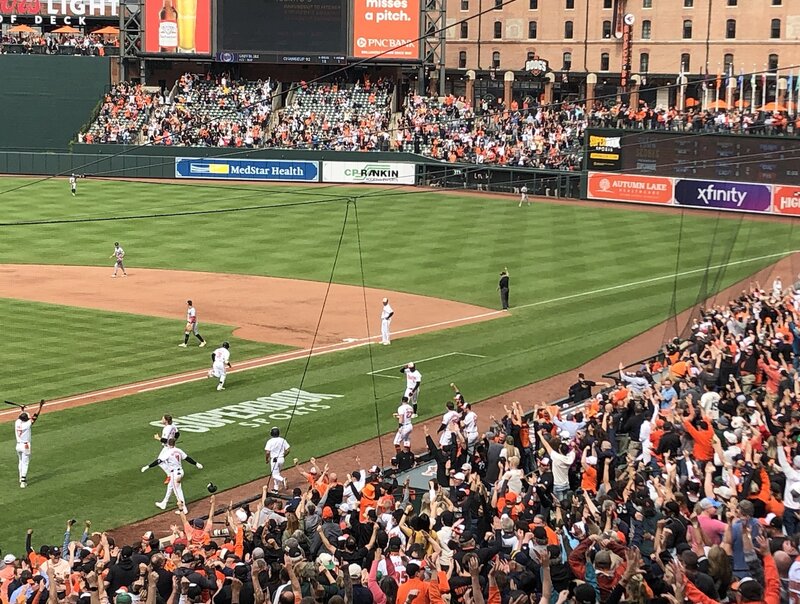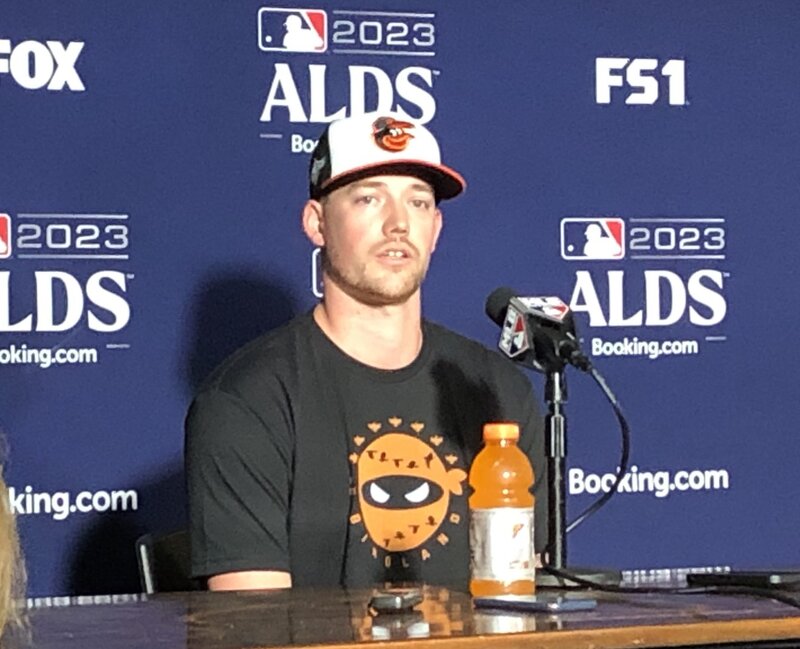The Orioles never expected to keep Wei-Yin Chen.
Don’t let anyone fool you into thinking that the starting pitcher was overrated or wasn’t worth the five-year, $80 million contract — opt-out clause and vesting option included — he was awarded by the Miami Marlins on Tuesday. The Taiwanese lefty isn’t a bona fide ace, but the Orioles were more than happy having him in the top half of their rotation over the last four years and the price was in line with what others of similar age and value have fetched on the open market.
Entering the offseason, you knew that Chen was replaceable, but not easily replaceable for an organization lacking quality arms in the minor leagues. You can either pay for quality arms or develop them, but being in between is a dangerous place.
As the curtain fell on the 2015 season, Dan Duquette said he wanted to acquire a starting pitcher for the front half of the rotation — to presumably replace Chen — but he’s yet to address the Achilles heel of the 2015 team unless you consider yourself the president of the Vance Worley fan club. Spring training is a month away, and the available free-agent options are dwindling with Yovani Gallardo, Mat Latos, Ian Kennedy, and Doug Fister topping the list.
Signing Gallardo or Kennedy would require the Orioles to forfeit their first-round pick, which should be a deterrent for an organization needing to rebuild its farm system. Neither provides the kind of upside you’d like to have before surrendering a draft choice.
The Orioles always figured they would have to depend on bounce-back seasons from Chris Tillman and Miguel Gonzalez as well as a big step forward from Kevin Gausman to contend in 2016, but the No. 5 spot in the rotation remains wide open while the rest of the group — which also includes the enigmatic Ubaldo Jimenez — already faces questions.
That’s less than ideal if you’re trying to compete.
Shortly after the news broke about Chen, outfielder Gerardo Parra agreed to a three-year, $27.5 million contract with the Colorado Rockies. Again, the departure wasn’t surprising as the 2015 trade deadline acquisition was a flop in his two months with Baltimore, but the Orioles still have a gaping hole in right field — and that’s with left field already being occupied by the difficult-to-project newcomer Hyun Soo Kim.
With Colorado now having a surplus of outfielders that includes two-time All-Star Carlos Gonzalez, the reports of the Orioles engaging in trade discussions with the Rockies have resurfaced, but they’ve been down this road before. Short of trading Gausman and opening another hole in a thin rotation, what exactly does Duquette have to offer for Gonzalez — whose career is trending in a concerning direction — or one of the other Colorado outfielders who have benefited from hitting at Coors Field?
Meanwhile, All-Star outfielders Justin Upton and Yoenis Cespedes are jumping up and down in the free-agent corner, waiting for someone — anyone — to notice them.
Alas, the Orioles seem content waiting on first baseman Chris Davis, even though they said more than a month ago that they’d pulled their offer. Owner Peter Angelos is willing to give Davis $150 million over seven years, but that money doesn’t appear to be in play for anyone else — even options that could be more desirable in the long run — or won’t be until it’s likely too late. You can’t tell people you’ve moved on if you’re not truly willing to pony up comparable funds for other high-quality players.
It’s easy to understand the allure of the home run and that Davis has become a fan favorite over the last few seasons, but when did he become Mike Trout or Cal Ripken? Why will Angelos give lucrative money to a player who two years ago hit .196 and was suspended 25 games for testing positive for Adderall but not to a younger and steadier player like Upton, who also addresses a clear need?
The 28-year-old Upton may have never developed into the superstar many anticipated, but he is also less likely to turn into present-day Ryan Howard over the course of a long-term contract.
Signing next-tier players such as the combination of outfielder Alex Gordon and starting pitcher Scott Kazmir would have been cheaper in the long run and, arguably, more valuable than Davis in the short term, but the Orioles continue to play the waiting game with agent Scott Boras. They’ve allowed the slugging first baseman to take their offseason hostage while other commodities gradually disappear from the free-agent market.
How much longer can they afford to wait if they have real interest in competing in 2016?
The willingness to offer Davis nine figures — an amount some already feel is a bad investment — and to wait out the entire offseason to do so makes it all the more baffling why the Orioles weren’t willing to give Nelson Cruz a fourth year on a more reasonable contract last winter.
And what will the excuse be if they don’t land Davis and other viable options are gone? The Orioles stood on the returns of Davis, Matt Wieters, and Manny Machado as reasons why they’d be able to overcome last year’s free-agent exodus, but there is no such crutch this time around.
They can say they tried, but attempting to sign a high-priced free agent and actually doing it are different things entirely. Continuously underestimating market prices and complaining about opt-out clauses don’t make you any better on the field.
Despite Wieters’ acceptance of the $15.8 million qualifying offer — a development that shouldn’t cripple a club’s long-term plan — the Orioles made some solid moves early in the offseason in trading for first baseman/designated hitter Mark Trumbo, re-signing All-Star reliever Darren O’Day, and taking a two-year, $7 million flier on Kim. But the offseason has come to a screeching halt since then with major holes still needing to be addressed.
Baltimore continues to wait on Davis as if he were the Holy Grail, the only direction they can possibly go this offseason.
But a month after saying they’ve moved on, the Orioles appear stuck on plan A and have apparently forgotten what comes next in the alphabet.
































